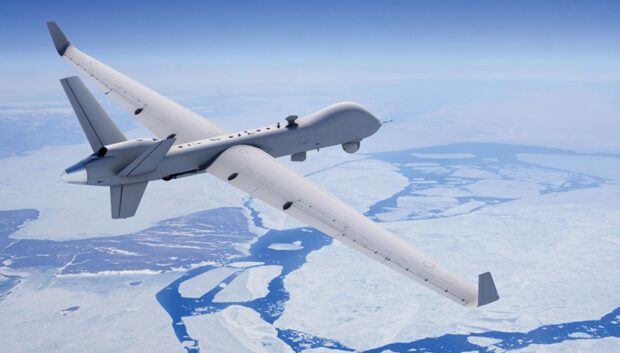The Canadian military’s acquisition of medium altitude armed drones is being delayed to allow for more development work to enable the aircraft to operate in the Arctic region.
The Remotely Piloted Aircraft System project was to deliver a fleet of drones for the Royal Canadian Air Force that would be operational by 2025. That date has now shifted and the delivery of the first aircraft is expected in 2028.
“The Canadian RPAS configuration will require significant development work in order to address RCAF requirements, which differ from our allies’ requirements,”
said Department of National Defence spokesperson Andrée-Anne Poulin told Defense News.
Ottawa is focused on acquiring the General Atomics MQ-9B Reaper in a project budgeted with as much as 5 billion Canadian dollars ($3.6 billion). It’s hoping to have a contract in place by the end of this year or early next year.
The developmental work would require the integration of new systems on the MQ-9B, Poulin said in an email.
“For example, the need to operate at high northern latitudes, including in the Arctic, requires the use of satellites and aircraft antennas and communication components not previously integrated on the MQ-9,” she said. “Similarly, additional testing and qualification work will be required to ensure the RPAS can be operated and maintained in Canadian climatic conditions.”
Poulin said there is also some developmental effort required to integrate the Canadian-made WESCAM MX-20 EO/IR sensor onto the platform.
“Other examples include work required to develop a training solution tailored to RCAF requirements, and airworthiness certification required to support the RCAF concept of operations,” Poulin added.
Mark Brinkley, a spokesman for General Atomics Aeronautical Systems, declined to comment.
In September the U.S. State Department approved a potential Foreign Military Sale to Canada for 219 Hellfire missiles and other weapons and radars to be used by the MQ-9B. The proposed sale is worth an estimated $313 million.
Department of National Defence spokesman Andrew McKelvey said that FMS proposal was developed based on the current planned timelines for the RPAS project. The equipment and weapons expected to be provided through the FMS case will be delivered as and when required to support the RPAS integration, testing and production work that will be performed by General Atomics, he added.
Source: Defense News
Footnote – See:
Reaper Aircraft Capabilities Tested in Canadian Arctic – National Defense 10/26/2021
In this article, Mark Brinkley, a General Atomics spokesperson, said:
“We have now proven that our UAS can operate safely in Arctic regions, over land and sea, where effective command and control and [intelligence, surveillance and reconnaissance] data transfer was previously not feasible,”

